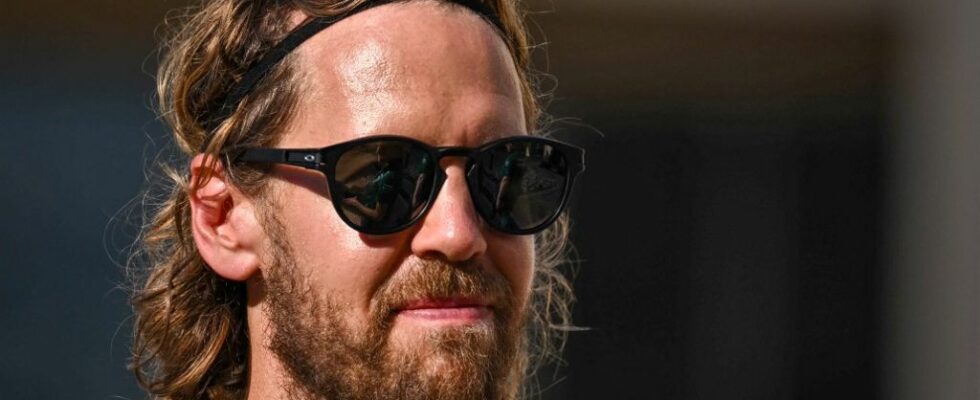Can you be environmentally committed and a Formula 1 driver? By retiring at the end of the last Grand Prix of the season, on the Yas Marina circuit in Abu Dhabi, the quadruple world champion, Sebastian Vettel provides the beginning of an answer. “My passion is associated with certain aspects that I have learned to dislike. They could be resolved in the future, but the will to implement this change must be much, much stronger and must be translated into action today. Words are not enough and we cannot afford to wait. There is no alternative. The race is on”, he explained on his social networks to announce his retirement at the end of the season.
An old ecological fiber that Sebastian Vettel gradually developed during his career through his humanism, as explained by Karin Sturm, author of his biography. “He was more interested in what was happening in the world than the other drivers. In 2011, he visited the Taj Mahal on the sidelines of the Indian Grand Prix. On the road, he saw the living conditions of the Indians, and came away with philosophical remarks on poverty, in particular. He has an eye, and a feeling for it. »
“Is this something we should do? »
With the acceleration of global warming, and the fact of becoming a father of three children, this commitment has become increasingly important. “Some things are in my control and some things are not. It’s my passion to drive a car, every time I get in the car I love it. When I get out of the car, of course, I also think: Is this something we should be doing, traveling the world, wasting resources? “, he confided recently to the BBC.
With the backdrop, the slowness with which Formula 1 is changing in relation to ecological issues. Sebastian Vettel has been pushing for several seasons for a geographical rapprochement of the races, while Liberty Media, the promoter of the discipline, has been slow to reshape the calendar and avoid round trips between the different continents. “It’s a set, he can no longer match F1 with his family and his children who are growing up. And there wouldn’t have been a lot of difference next year with the use of fossil fuels and the impossibility of fighting for a race or a podium”, summarizes Karin Sturm.
Youngest F1 champion with RedBull
In parallel with his commitments, and before joining Aston Martin, which has struggled to score points in almost every race this season, Sebastian Vettel was a great champion. And even the youngest, winning his first title with RedBull in 2010 at the age of 23 years, 4 months and 11 days (a record since beaten by a certain Max Verstappen), before winning three others until 2013 with this new team in the world of F1.
“It was a really good combination, he and RedBull were young, their car suited his driving well, and Adrian Newey [ingénieur de RedBull] developed the car to his style”, lists his biographer. By becoming the youngest world champion, he earned the nickname “baby Schumi”, in reference to his lifelong idol. “German motorsport was based on Schumacher at that time and he was able to follow in his footsteps,” said Karin Sturm, who also wrote the Red Baron’s biography.
The painful Ferrari years
With one ready exception, that of never having won with Ferrari, a team that Sebastian Vettel joined in 2015, after a complicated last year with RedBull. Mixed beginnings, before two titles of vice-world champion in 2017 and 2018, and a gradual fall. “You just have to look at this Ferrari season to understand why it didn’t work,” says Karin Sturm.
In question, unclear strategies of Ferrari, and estrangements with Kimi Räikkönen, his teammate. But the 2019 season, and cheating on Scuderia engines truly marks the breaking point, recorded in 2020. “Sebastian Vettel is a deeply honest person, he did not at all appreciate being attached to these stories. More generally, he is sensitive and needs comfort in his environment. What he had at RedBull, but not at Ferrari, ”says the journalist.
A special personality in the paddocks
These character traits just make him such a special person in the Formula 1 paddocks, and they are no strangers to the feat of having managed to bring together all the drivers from the grid for a farewell lunch on Thursday evening. on the sidelines of the Abu Dhabi Grand Prix. “He’s special because he cares about other people. He is not egocentric, a necessary quality to become one of the best pilots, like the others”, underlines Karin Sturm. For example, he had waited a long time in front of Max Verstappen’s motorhome after his big accident at Silverstone to hear from him.
There is no doubt that some of his opponents will accompany him in a series of “donuts”, as he did for the first retirement of Fernando Alonso, for his final goodbye to Formula 1. Unless. “I’m not sure he won’t come back. It depends a bit on how things will develop in F1, but I wouldn’t rule out a comeback. Not as a TV consultant, but with the ability to change things,” warns Karin Sturm.

